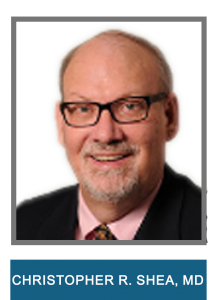
The University of Chicago was one of the first institutions to create a dermatopathology fellowship program in the nation, in the 1970s. We continue to offer a comprehensive training experience, administered within a dynamic, academically oriented clinical Section of Dermatology, and enjoying cordial and productive relations with colleagues in the Department of Pathology.
Our tertiary medical center serves a large and diverse urban population, and the daily diagnostic material spans common entities affecting all ages, genders, and ethnicities; diagnoses disproportionately affecting patients of color, including connective tissue diseases and scarring alopecia; and challenging presentations of complex medical dermatoses, including unique reactions to novel chemotherapies for cancer.
Our dermatopathology faculty members all hold current board certification in dermatology and dermatopathology, ensuring close attention to clinical-pathologic correlation during daily teaching at the microscope. In addition, several of the faculty also hold advanced degrees or training in business administration, anatomic pathology, or immunodermatology, offering a very broad perspective. The fellowship training director (Dr. Christopher R. Shea) is the Editor-in-Chief of the Journal of Cutaneous Pathology, the official publication of the American Society of Dermatopathology.
Fellows gain competence in their complementary training area (whether dermatology or pathology), while also attending daily diagnostic sign-out sessions at the microscope. They learn to manage the work flow, describe key findings, create draft reports for review by the attending, and order supplementary studies as needed. Fellows also play a key role in teaching the next generation of dermatologists and pathologists in-training, through active participation in sign-out, journal clubs, and formal didactic conferences. All fellows complete at least one paper or presentation at a scientific congress during the year. By the end of their training, fellows achieve mastery through close, personal mentorship, always in the context of current scientific research and literature review.
